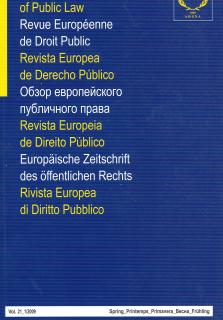
Administration without Frontiers?
European Migration Law /
Administration sans frontiÈres?
Droit europÉen de l’immigration
Turkey / Turquie
Turkey is both a source, transit and destination country due to its location. Therefore, regulations should embrace all these circumstances and not conflict with each other. On the other hand, as a European Union (EU) candidate country, Turkey should take into account the EU acquis communautaire on this matter. The fight against human smuggling and trafficking requires strict cooperation. In this context, Turkey has concluded agreements with third countries besides the EU Member States. However, the EU’s belief is that this cooperation is not sufficient. Turkey has signed and implemented Security Cooperation Treaties with 57 countries stipulating cooperation in the fight against organized crime and terrorism. All these Treaties include clauses anticipating the establishment of cooperation against human smuggling and trafficking. Turkey also has changed its positive law in favor of the victims of human smuggling. As for the legal instruments, some key terms of migration law have been differently defined in Turkish law. Turkey is modifying its legislation within the process of harmonization with the EU acquis communautaire.
La Turquie est à la fois un pays d’origine, de transit et de destination en raison de sa position. Par conséquent, la réglementation doit couvrir toutes ces circonstances et ne pas être en contradiction en elle-même. D’autre part, la Turquie, un pays candidat de l’Union européenne (UE), doit prendre en considération l’acquis communautaire dans ce domaine. On a besoin d’une coopération stricte pour la lutte contre l’immigration clandestine et le trafic d’êtres humains. Dans ce contexte, la Turquie a conclu des accords avec des Etats tiers en plus des Etats membres de l’UE. Pourtant, l’UE juge que cette coopération n’est pas suffisante. La Turquie a signé et mis en application des traités de coopération en matière de sécurité avec 57 Etats. Ces traités prévoient une coopération dans le domaine de la lutte contre le crime organisé et le terrorisme. Tous ces traités incluent des clauses qui établissent la coopération contre le trafic d’êtres humains. La Turquie a changé son droit positif en faveur des victimes du trafic d’êtres humains. En ce qui concerne les instruments légaux, certains termes clés du droit d’immigration ont été définis différemment en droit turc. La Turquie est en train de modifier sa législation dans le cadre du processus d’harmonisation avec l’acquis communautaire.





















